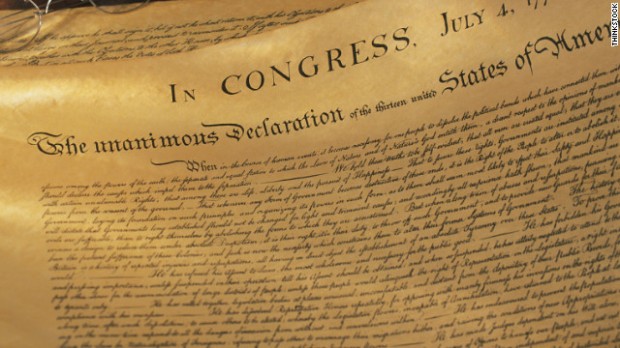Independence Day 2012
 What will Independence Day 2013 look like in America?
What will Independence Day 2013 look like in America?
That thought crossed my mind in the middle of the day, seeing coverage of both celebrations of the Fourth across the country and deliberations of the ObamaCare ruling across the news networks. I’ve been traveling a lot lately and maybe it’s a good thing not to try keeping pace with the onslaught of analysis pouring out over the past week of what Chief Justice John Roberts might have been thinking when he issued the decisive and historic opinion in upholding ObamaCare as constitutional, as a tax. Especially in its implications for the integrity of the Supreme Court.
Had a majority of the justices struck down Obamacare, the court — fairly or unfairly — would have become a bigger issue in the presidential campaign than usual and in ways that could have been damaging to its authority.
Everything has become political. Even the Constitution and Declaration of Independence.
Americans know that the Declaration of Independence proclaims as a matter of fact that they “are endowed by their Creator with certain unalienable rights.” But when Obama recites this line, he omits the word “Creator.”
Listen carefully to how Obama censors that famous line. Here are his own words: “all men are created equal, that each of us are endowed with certain inalienable rights.” He doesn’t say who endowed us.
Obama has done this so often that it can’t be a slip of the tongue or a glitch of the teleprompter. Changing the words of the Declaration of Independence is part of Obama’s determination to remove everything religious and every mention of God from every aspect of our public life in order to fundamentally transform us from “one nation under God” into one nation under the Federal Government, especially the executive branch, with no higher power recognized.
The US Bishops called the Fortnight for Freedom for that reason, and though the event closed with a liturgy and addresses on Independence Day, it really served as a rocket booster to propel the movement to defend constitutional liberties forward.
No government should tell religious organizations either what to believe or how to put their beliefs into practice. We indeed hold this to be an unalienable, constitutional right. If freedom of religion is a constitutional value to be protected, then institutions developed by religious groups to implement their core beliefs in education, in care for the sick or suffering, and in other tasks must also be protected. Only by doing so can the free exercise of religion have any meaning.
This is a year of historic consequence in America. The president, the Chief Justice of the Supreme Court, elected representatives of the republic and citizens who may have taken liberty for granted all have a new – and very different – stake in it.
